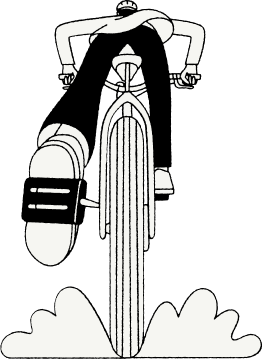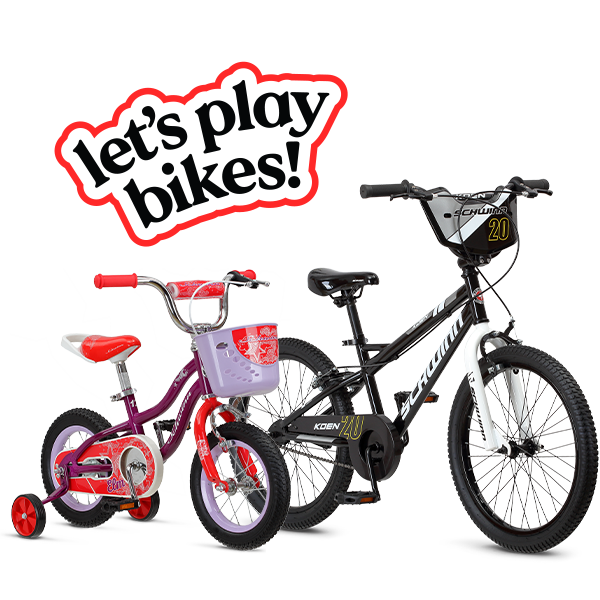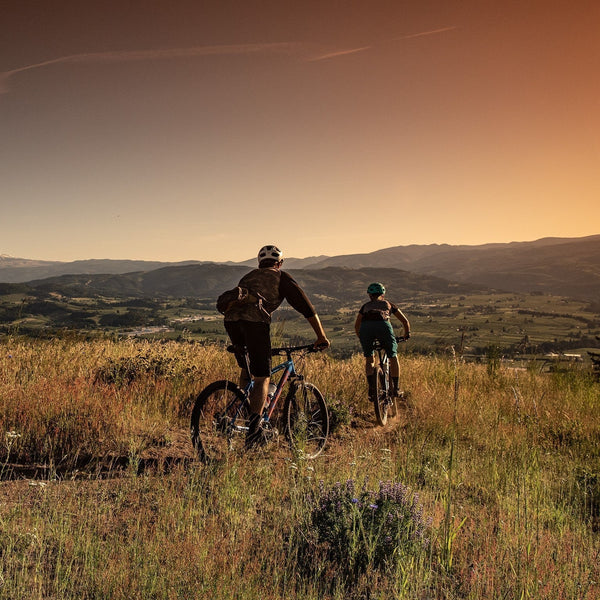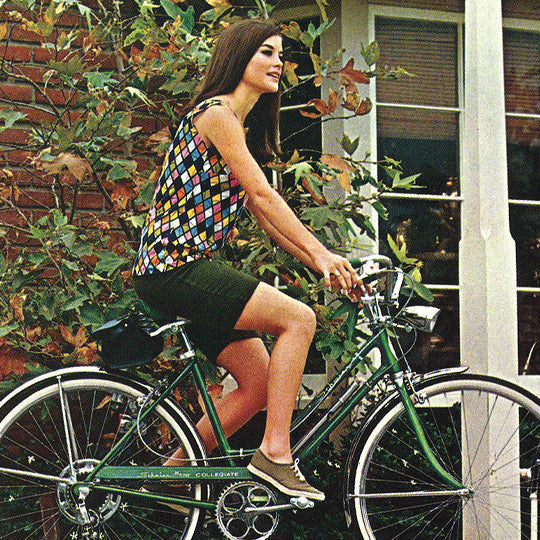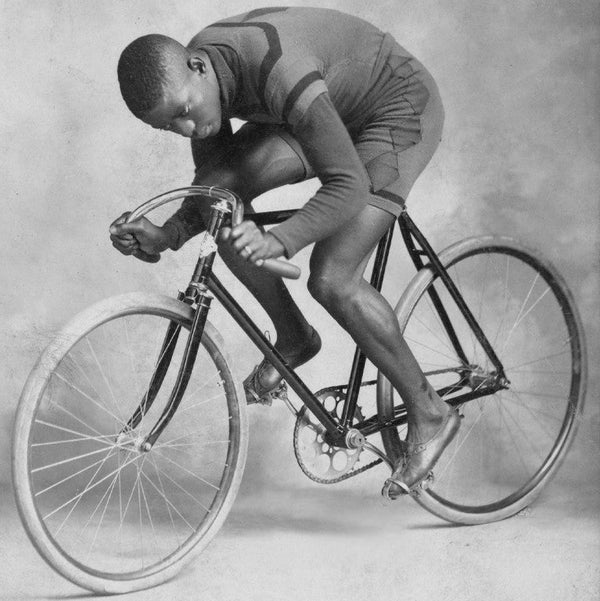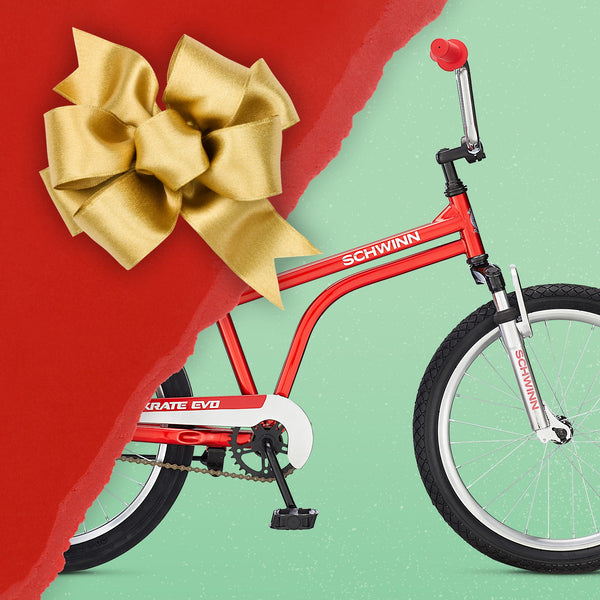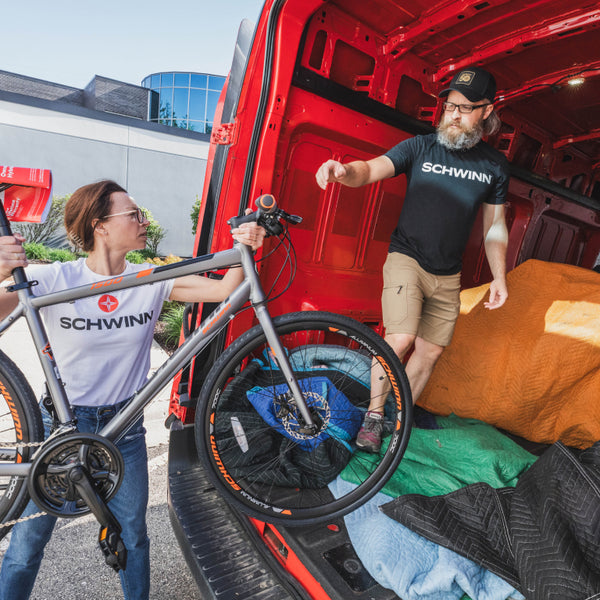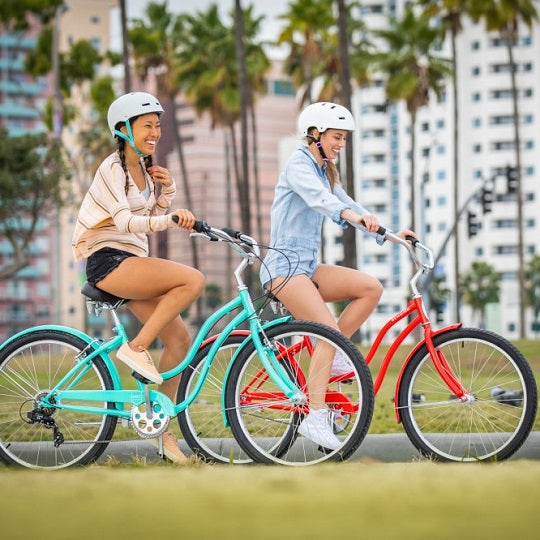Lacey is a cancer survivor, a Paralympian, an American Record Holder, and a performance psychology practitioner. She has combined her love for sport with advocacy and mental health, helping athletes and nonathletes alike. Now as a Schwinn Ambassador, Lacey is sharing her story and what she’s learned for Disability Awareness Month.
When I lost my leg in 1999 due to failed chemotherapy trials for a rare soft tissue pediatric cancer - there wasn’t quite a handbook for what recovery was going to look like for me. I was fortunate enough to have doctors that encouraged a surgery that would offer more active opportunities – amputation over limb salvage – so that I could return to being a normal kid again.
After receiving my first prosthetic, it was a relatively quick recovery process. Acquiring a disability comes with a lot of unforeseen things. I had to wean myself on to using a prosthesis for multiple hours a day, learn to verbalize what and where I felt discomfort, and had to deal with frustration for doing things that previously were effortless.
Since March is Disability Awareness Month, I wanted to share some anecdotal wisdom for those out there who have wanted to incorporate bikes but maybe feel some type of apprehension due to having a body that is different from the mainstream.
-
Embrace being new (again)
Maybe it’s a new bike, a new mobility device, or even a brand-new activity. Come in being open to learning instead of criticizing yourself for not meeting an expectation. Don’t expect mastery on the first day. Most things take time and being on a bike should be enjoyable! -
Find adjustments that work for you
I had to learn everything new. What side is best and safest to mount and dismount, what height I need my bike to be, or even the biggest deal with most prosthetic users – how to keep my foot on the pedal! My dad and I had a giant Velcro contraption for a while, and I’ve used a foot cage (the kind you typically see on a stationary bike) for longer rides (since I don’t use clips). The best thing that works for me every day, is the occasional check during a stop at an intersection and adjusting my foot as needed. Some people with balance issues I know love using a tricycle instead of a bike (plus you have major storage space which is a plus!). -
Go at your own pace
Some people can really whip around in a bike, and while it would be fun to keep up, going places on a bike requires a lot of mental and physical effort for some. Figure out a good route you want to take ahead of your trip, take breaks as needed, and make sure you have everything you’d need for your adventure! This is the greatest measure to take to make sure you are safe -- which is the most important thing! Learning not only what your limits are but how to articulate them when you need to are essential lessons. -
Try something new
I rode my bike to classes a lot during undergrad. I really love to bike, but I had to either hop off of a big uphill or take it really slow since I only have one good leg for pushing. I also had a friend with Cerebral Palsy (CP) who always wanted to ride but could never balance. She ended up using a tricycle and never looked back. I feel the same with my e-bike, which makes hills a breeze and consequently keeps my foot on the pedal better! -
Make sure your mobility equipment is good to go
Some people have issues with bikes because of how a socket or brace can fit. Sometimes you only learn the hard way if you need to adjust your device, but learning in a secure area how your medical equipment interacts with a bike is a great way to make sure everything is safe and ready to go for the open road (or bike path).

My memories of re-learning to ride a bike are filled with fear and frustration, and if I can do anything in this life, it would be to make that process easier for someone else! Some of the big issues I dealt with were balance, keeping my prosthetic foot on the pedal, and strength going uphill. Through a lot of tears, my dad’s creativity, and what feels like a gajillion attempts, we learned a few things. While your experience will be unique to you, I hope that mine can help you learn something useful – because bikes are for everybody!
